
The Resolution of the Sobor of Bishops concerning the heresy of sergianism:
«To those who affirm the antichristian sergianist heresy; to those who teach that the Church of Christ is ostensibly saved through union with Christ's enemies, who reject the podvig of martyrdom and confession of the faith, who set up a pseudo-church on the grounds of Judas, and who, for this purpose, permit the doctrine, canons and moral laws of Christianity to be violated; to those who direct Christians to worship a theomachic regime, ostensibly given by God, and to serve it not out of fear but for conscience's sake, blessing all its iniquities; to those who justify the persecution of the True Church of Christ by the theomachs, thinking that they thereby serve God, - as, indeed, did the continuators of the renovationist heresy, Metropolitan Sergii Stragorodskii and all his followers - Anathema!»
6/19 November 2004
St. Paul, Archbishop of Constantinople
☦ Metropolitan Vitaly (signature)
☦ Bishop Sergii (signature)
☦ Bishop Vladimir (signature)
☦ Bishop Varfolomey (signature)
☦ Bishop Antonii (signature)
☦ Bishop Viktor (signature)
The antichrist essence of Metropolitan Sergii's Declaration of 1927 and of the heresy of sergianism.
(from the reports read at the 2004 ROCA Sobor of Bishops)
19.11.2019Read more
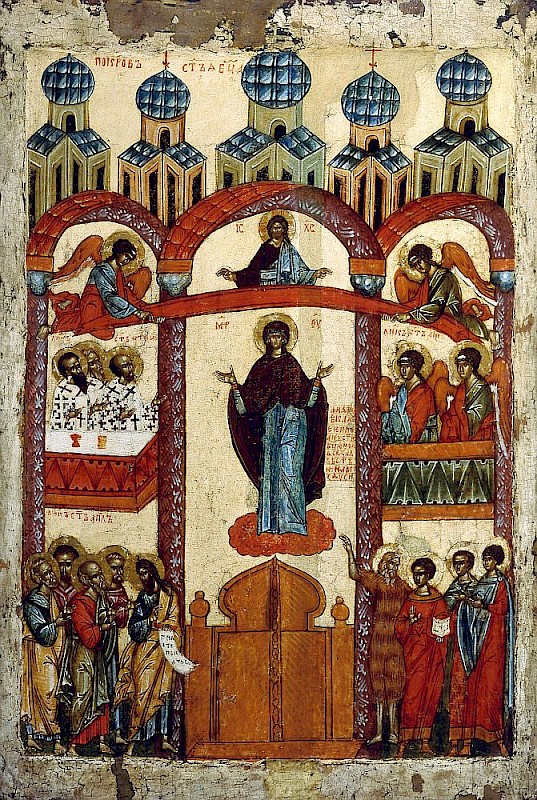
Joyous for the faithful heart is the feast of the Protection of the Mother of God! It reminds and strengthens us so vividly and evidently in our hope that we all are not forgotten by the Most-Pure and Most-Blessed Virgin Mary, the Mother of the human race, who protects all Christians by her saving and merciful Protection.
As the great Abba of Russia Abroad, His Blessedness Metropolitan Anthony, once pointed out, the festive celebration of the feast of the Protection of the Theotokos by the whole Russian Church testifies that spiritual roots stood above all else for the Russian people.
For the feast of the Protection of the Theotokos reminds us of an event that took place long ago, and an event in which our ancestors suffered defeat against the Greeks, who were under the Protection of the Theotokos. It turned out, however, that the Greek Church celebrates this feast very little, hardly marking it at all, while the Russian Church and the Russian celebrate the Protection of the Theotokos so festively, that it reminds us of the celebration of the twelve feasts, the greatest feats in our church year. Of course, the reason for this is the calming and encouraging character of the feast. The Theotokos protects the people praying in church. We know this from the great saint and witness of spiritual mysteries, Saint Andrew the Fool for Christ, who testified that the Queen of the heavens did not separate the bad people from the good and the pious: She covered all those standing in the church with Her goodness. That is what the Russian people believed, that She, the All-good Mother, covers all with Her Protection.
14.10.2019Read more
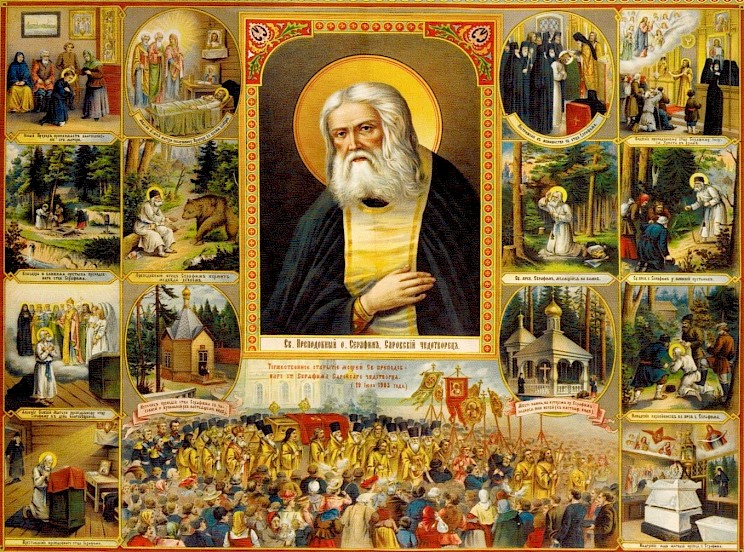
In the name of the Father, the Son, and the Holy Spirit!
'They will sing Pascha in the summer', they once said in Sarov. Seventy years passed from the death of the man about whom these words were pronounced, and on July 19, 1903, all of Rus' resounded with hymns of praise, glorifying God and His saint. Truly, all of Rus' exalted then as on the Day of Holy Pascha-even more so.
Terrible days were to come for Russia, but the memory of St Seraphim neither died nor weakened. Russian people continue to appeal to him and glorify him, both in the suffering Homeland and throughout the ends of the world where they are scattered. Even other nations are becoming familiar with St Seraphim; his Life (biography) is being translated into various languages, evoking not only admiration, but also, in many, the striving to apply in their own lives the lessons given to us by his life. Thus, despite the changes that have taken place in the world, the memory of St Seraphim not only does not fade, but it remains a lamp that shines ever brighter to humanity.
01.08.2019Read more
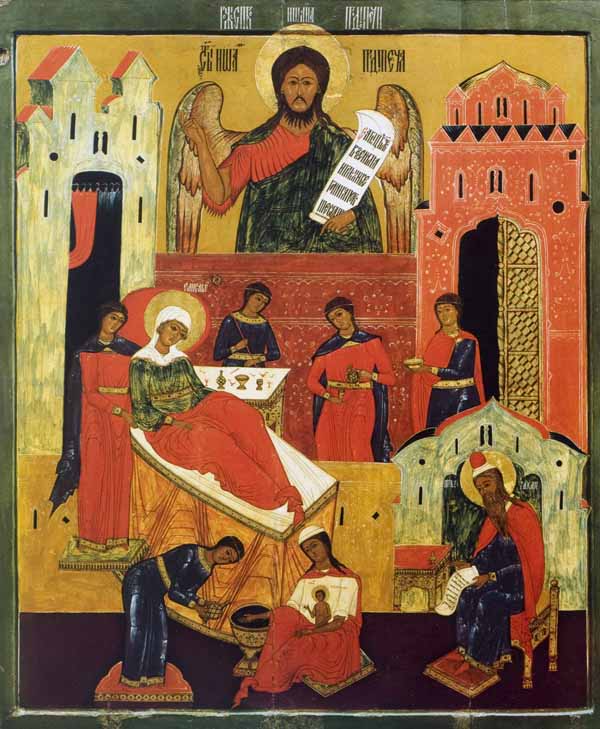
Among the Church's feasts, there are three in honor of God's saint which in their significance stand out from the others devoted to the saints and are numbered among the great feasts of the Church of Christ. These feasts glorify the economy of God for our salvation.
These three feasts are the Nativity of St. John the Forerunner, his Beheading, and the feast of the Holy Apostles Peter and Paul.
The apparition of the holy Archangel Gabriel to the priest Zacharias in the Temple, with the announcement of the birth to him and the righteous Elizabeth, of a son who would prepare the way for the Lord, the Savior of the world, and the subsequent fulfillment of this premise, are the first of the events related by the Evangelists.
The announcement of the holy Archangel Gabriel to Zacharias in the Temple begins the New Testament Gospel. The announcement of the same Archangel Gabriel six months later in Nazarethto the Virgin Mary concerning the birth from Her of the Son of God, Who was to become incarnate, is a continuation of the revelation of the Pre-eternal Counsel concerning the salvation of the human race.
Three months after, the Annunciation, St. John the Forerunner was born "in a city of Judah," and six months after him Christ Himself was born in Bethlehem.
07.07.2019Read more

1. TRULY "God is glorious in his saints" (Ps. 68:35 Lxx). Let us call to mind the martyrs' superhuman struggles, how in the weakness of their flesh they put to shame the evil one's strength, disregarding pain and wounds as they struggled bodily against fire, sword, all different kinds of deadly tortures, patiently resisting while their flesh was cut, their joints dislocated and their bones crushed, and keeping the confession of faith in Christ in its integrity, complete, unharmed and unshaken. As a result there were bestowed on them the incontrovertible wisdom of the Spirit and the power to work miracles. Let us consider the patience of holy men and women, how they willingly endured long periods of fasting, vigil and various other physical hardships as though they were not in the body, battling to the end against evil passions and all sorts of sin, in the invincible inner warfare against principalities, powers and spiritual wickedness (Eph. 6:12). They wore away their outer selves and made them useless, but their inner man was renewed and deified by Him from Whom they also received gifts of healing and mighty works. When we think on these matters and understand that they surpass human nature, we are filled with wonder and glorify God who gave them such grace and power. For even if their intentions were good and noble, without God's strength they could not have gone beyond the bounds of their nature and driven away the bodiless enemy while clothed in their bodies.
22.06.2019Read more

Brothers and sisters! See how the Holy Church teaches our conscience. The flowers today represent our conscience. Because when all of nature was still dead, when the time of our yearly cycle was approaching, the Holy Church revealed to us a great mystery: the mystery of our redemption. She then opened before us the cave of Bethlehem and the Lord Who had just been born. And we were told through the reading from the Epistle to the Galatians that this cave is our entrance in to a new yearly cycle, that at the manger of Christ our soul is renewed, and that in this renewal of spirit we receive the spirit of adoption (sonship), which unites us into the one family of Christ (Gal. 4:4-7).
And these are not just words. The Holy Church convinces us of this, comparing our spiritual life with what goes on in nature: the death of nature in winter, its revival in the beauty of spring and summer, and the yielding of fruit in fall. It is the same with the soul of a human being. After the sluggishness of spiritual slumber, a person receives the spirit of adoption in order to unite in one family and to receive what the Lord gives in His plan of salvation — His Body and Blood, the Mystery of the Tree of Life, which Adam lost in Paradise.
16.06.2019Read more
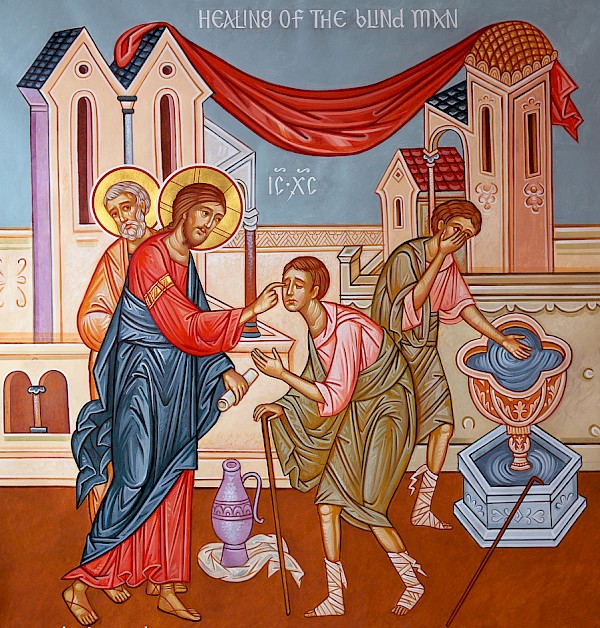
Today we heard at the Divine Liturgy the account of the Holy Evangelist John the Theologian about the healing by Jesus Christ of the man born blind, that is, who had never seen anything before. It is characteristic that, when this Gospel account ends, the Lord said: “For judgment I am come into this world, that they which see not might see; and that they which see might be made blind” (Jn 9:39). And His spiteful enemies, the scribes and Pharisees, probably with irony and mockery, asked Him: “Are we blind also?” (Jn 9:40). And they received an answer, as the Lord told them: “If ye were blind, ye should have no sin” (Jn 9:41), because if a person does not know and does not see, he cannot transgress consciously and does not sin so greatly. Even if he makes a mistake, the Lord Himself does not find it a sin, if the person did not know he was sinning. So the Lord spoke, “If ye were blind, ye should have no sin, but now ye say, We see; therefore your sin remaineth” (Jn 9:41).
01.06.2019Read more
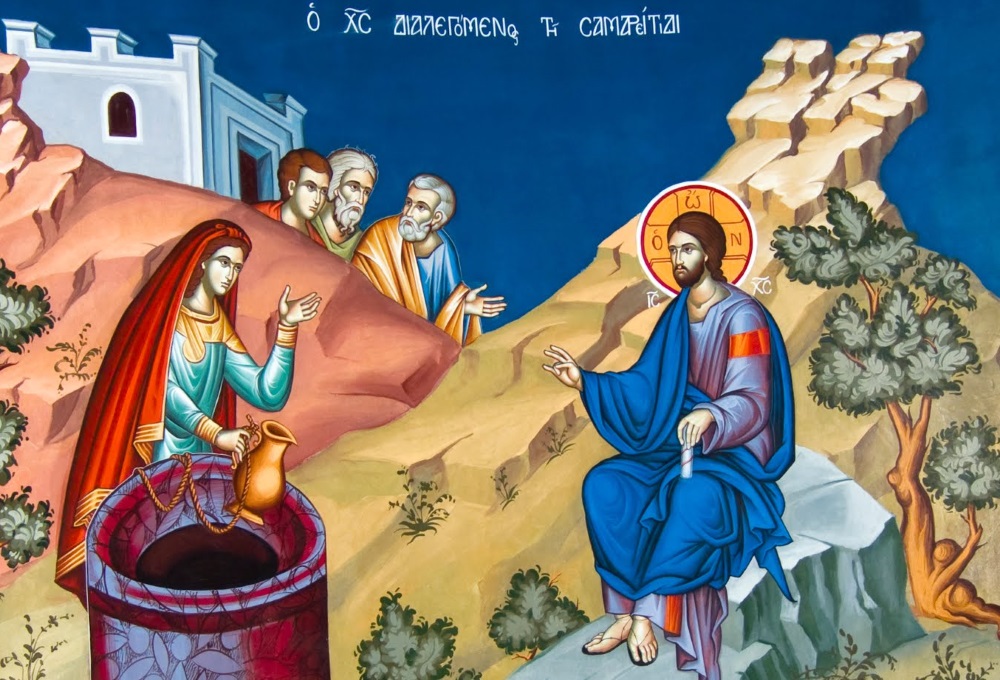
The Church calls tomorrow’s Sunday the Sunday of the Samaritan, that is, the Sunday of the Samaritan Woman, because at the Divine Liturgy the Gospel narrative is about how our Lord Jesus Christ spoke at Jacob’s Well with the Samaritan woman, turning her to the light [of truth] and towards a good and pious life. In this moving narrative we all see, above all, a lesson for us about how careful we ought to be in judging our neighbors, and to avoid all condemning judgment of them, remembering what the Gospel tells us.
26.05.2019Read more

"And when the Sabbath was past, Mary Magdalene, and Mary the mother of James, and Salome, had bought sweet spices, that they might come and anoint Him. And very early in the morning the first day of the week, they came unto the sepulcher at the rising of the sun. And they said among themselves, Who shall roll us away the stone from the door of the sepulcher?" (Mk. 16:1-3).
Brothers and sisters! Can you imagine the state of mind these Myrrhbearing women were in? For those who lived through Soviet times in Russia and through the persecution of the Church, it is so understandable. In some churches, as in the outskirts of Kiev, this service (the Burial of the Savior) was performed at night. People made their way to such a church through dark streets. Anything could happen, you had to be careful of everything. Neighbors might hear that you went somewhere at night; and you could be stopped on the street. And the service itself in church and the carrying of the Shroud around the church could be interrupted by the authorities. One did not know if tomorrow, on Holy Saturday, this already semi-Easter Liturgy would be performed, because the priest might be arrested.
11.05.2019Read more
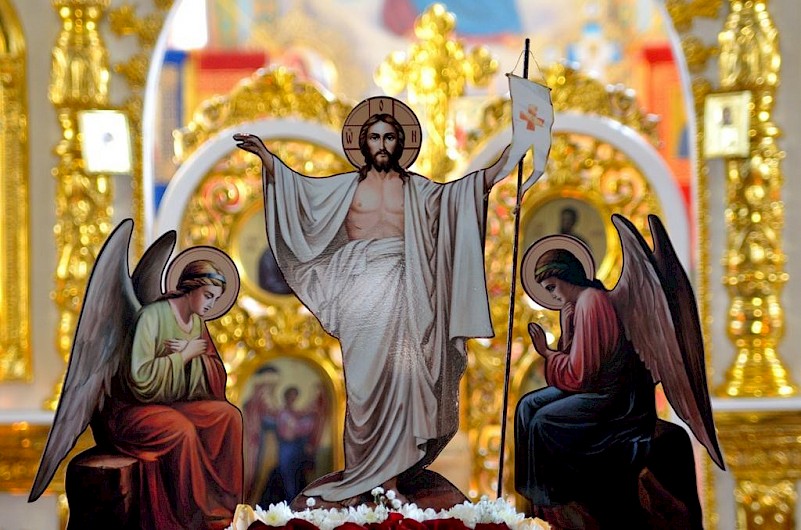
Beloved brothers and sisters in Christ!
Christ is Risen!
With what joy and even exultation, the soul of every Orthodox person responds in the victorious exclamation: Truly He is Risen! The Resurrection of Christ is the Victory over death, it is Pascha, it is the way to life everlasting, where there is neither sorrow, nor disease, nor death. Who is found in eternal joy with all the heavenly beings? All believers who seek the Truth - find it in Christ, for Christ is the Way and the Truth. Yes, the Truth is crucified, it can be denied, it is in the minority, but Truth can be defeated by no-one, by nothing - not even death. And if the Truth of Christ is in us, if we confess intact Orthodox Christianity, then we are the victors, no matter how small the last remnant of truly Orthodox Christians may seem. Remember this, beloved in Christ, brothers and sisters! And don't let the enemies of the Risen One bother you! Their days are numbered, they are "as smoke disappears, let them disappear," for our life is only one moment in a world damaged by evil. And the Pascha of the Lord opens the door to eternal life and everlasting joy. Therefore, the church hymns are overflowing with joy today: “Pascha, Lord's Pascha! Pascha, most honorable has shone for us. Pascha, we hug each other with joy. Oh, Pascha! The deliverance from sorrows, for from the tomb this day, Christ has shone forth from the hall of Christ. " Therefore I say to you again and again: Christ is Risen!
☦ Metropolitan Philaret.
Pascha 2019
Source.
03.05.2019Read more










